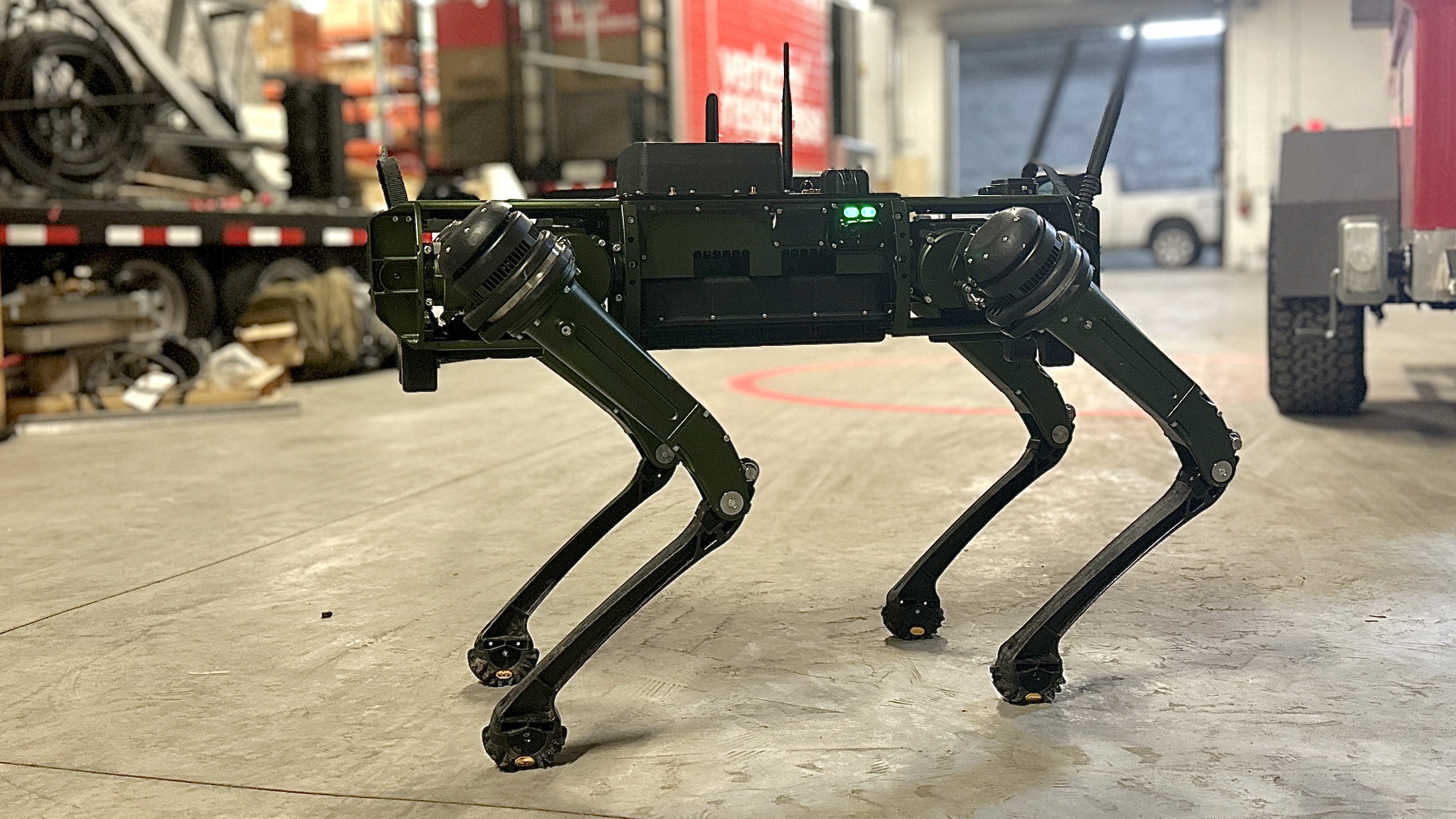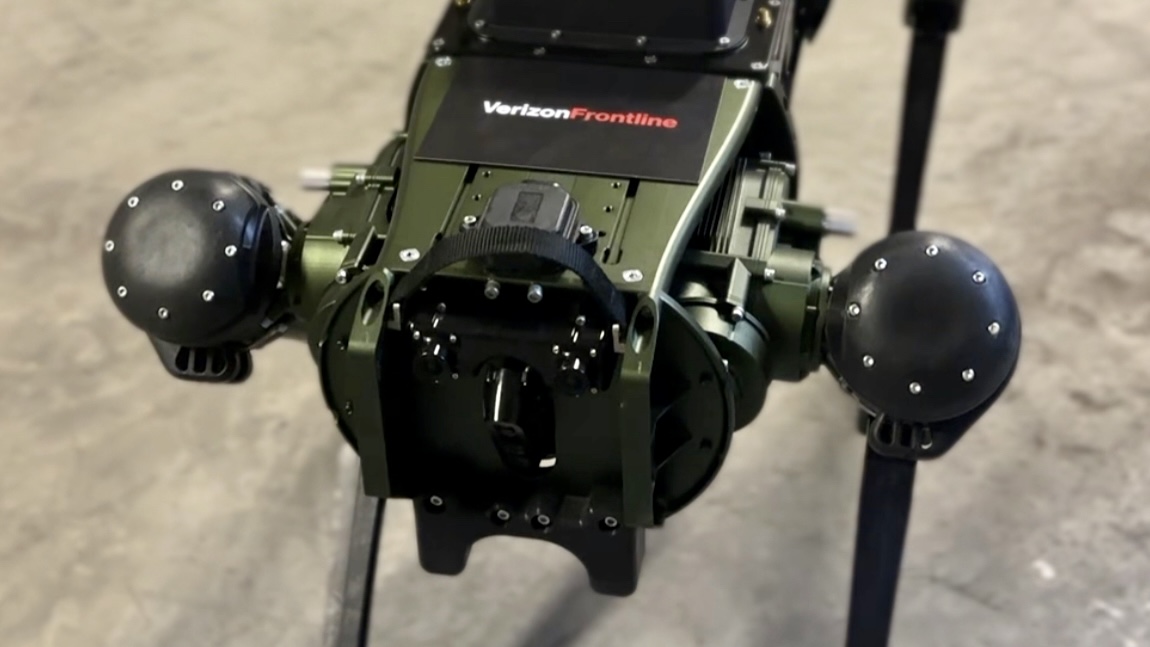I just went face-to-face with Verizon’s 5G robot dog — here's what happened
Robot dogs to the rescue?

Verizon’s solution for getting network connection to hard-to-reach and potentially inhospitable destinations? A team of robotic dogs from Ghost Robotics wielded by the company’s Frontline response division. I went up-close with one of the robo-hounds at Verizon’s secretive emergency preparedness cave outside Kansas City to see how the four-legged Fido-bot could be the future of disaster relief.
Similar to the ‘Spot’ robo-dog from Boston Dynamics, Verizon’s yet-to-be-named assets are quadrupedal robots with a degree of agility wheeled machines lack. They can remotely traverse tough terrains, such as a wildfire-ridden mountain, with modifications that might come in handy in times of trouble. For Verizon, these modifications mostly include networking hardware.
@tomsguide ♬ Fake ID X Walking On A Dream Carter Walsh Remix - CarterWalsh
While Verizon has several emergency response assets — including a mobile 5G command center rigged into a Transformer-like truck called THOR — there’s a need for one that can go where a human can’t reach. Sticking with the wildfire example, Verizon’s robot could access higher points more easily without concern of smoke inhalation.
Once there, attached networking hardware can help keep first responders connected or temporarily replace networking infrastructure that was damaged in the disaster event. Theoretically, Verizon could outfit the robot dog with an on-board router for LTE and C-Band Verizon 5G, or simply a MiFi mobile hotspot device. The dog also has T-slots that could hold, say, a Starlink enterprise terminal that grabs a LEO signal to be covered for Wi-Fi.
Though it’s a bit unnerving to think of what an ultra-agile, network-connected robot dog could do in the hands of a bad actor, Verizon’s use cases are clearly a step in the right direction for disaster relief.
The applications, from my understanding, will continue to be adapted based on the situational needs even after the robots are officially in service. At some point, all five units could even enter a disaster together thanks to mesh Wi-Fi.
Compared to Verizon’s other disaster relief tools, the robot dog currently access opportunities not allowed by existing measures. Drones are integrated with a number of the company’s assets, but drone operation is subject to law of sight rules. As long as the robot is connected to a cellular network, it could follow commands from a remote tablet, growing the deployment possibilities.

A good example the Verizon Frontline team provided during the demonstration is a chemical spill like the one caused by the East Palestine train derailment in February. The robot, outfitted with “sniffers,” could scout a large area for signs of nuclear pollutants or other harmful chemicals that would cause dangerous exposure for a human. If this area is in a remote region, the dog’s networking hardware would still be able to communicate in real-time with the controller.
Sign up to get the BEST of Tom's Guide direct to your inbox.
Get instant access to breaking news, the hottest reviews, great deals and helpful tips.
Though it’s a bit unnerving to think of what an ultra-agile, network-connected robot dog could do in the hands of a bad actor, Verizon’s use cases are clearly a step in the right direction for disaster relief. I certainly enjoyed watching the dog prance around in a cave (especially when I took a turn operating the controller,) but it’ll be out on the front line of an emergency that robot dogs will have to prove that they’re not all bark.
More from Tom's Guide
Kate Kozuch is the managing editor of social and video at Tom’s Guide. She writes about smartwatches, TVs, audio devices, and some cooking appliances, too. Kate appears on Fox News to talk tech trends and runs the Tom's Guide TikTok account, which you should be following if you don't already. When she’s not filming tech videos, you can find her taking up a new sport, mastering the NYT Crossword or channeling her inner celebrity chef.

